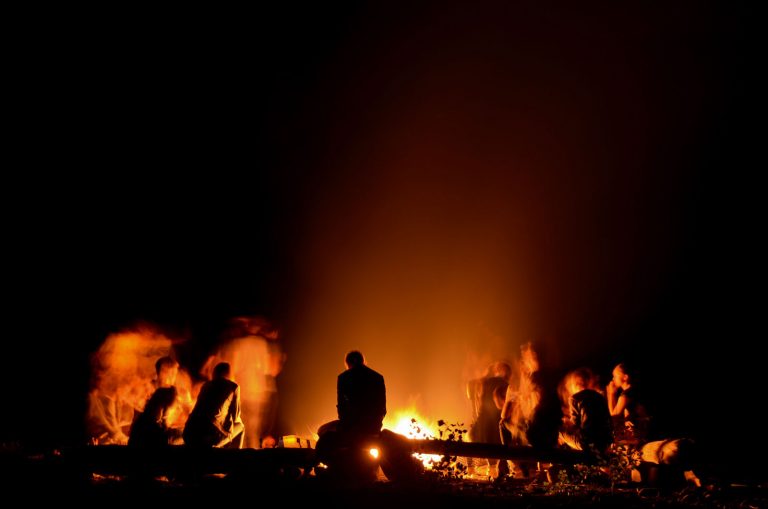“Admirable friendship, admirable companionship, admirable camaraderie is actually the whole of the holy life.”
—Upaddha Sutta
As a Buddhist dharma teacher and spiritual counselor I meet weekly with individuals for one-on-one sessions. The introductory sessions are often predictable: a new friend sits in my office, clearly at wit’s end, detailing an array of struggles relating to loneliness, compulsive behaviors, broken relationships, obsessive worry, unmet creative goals, and so forth. Their hope is that I can provide a basic meditation practice to alleviate all this suffering.
If only it were so easy to mend our maladaptive impulses and chronic distress through 30 minutes of daily solitary introspection, to have no more need for expensive therapy or the awkward messiness of reaching out to a friend for empathy and support! However, it’s just not realistic.
The desire for meditation to be a panacea for life’s challenges is certainly understandable, given that the dominant image of Buddhism in the West is that of a lone individual, eyes closed, seated on a cushion. “Don’t just do something, sit there!” is a favorite mantra. Yet exceptionally few Asian Buddhists meditate, as anyone who has spent time traveling can attest. In Thailand, for example, Buddhist temples are communal centers where friends connect and socialize, not quiet spaces for contemplation.
The temple’s social component is not an accident. When it comes to healing our deepest wounds, there’s no other game in town than disclosing our pain to others. Human brains, you see, are social brains. From birth, our core drive is to establish attachment with caregivers to ensure our survival, because without ongoing care, we are helpless.
Buddhism, contrary to the mainstream imagery, stresses the importance of having a strong community and surrounding ourselves with people who can have a positive influence. The Sambodhi Sutta explains:
If wanderers who are members of other sects should ask you, “What, friend, are the prerequisites for the development of the wings to self-awakening?” you should answer, “There is the case where a monk has admirable friends, admirable companions, admirable comrades.”
But we don’t have to just take the sutta’s word for it.
Bonding is what provides our species with its greatest facility, and it is as vital to our survival as flight is for birds. (Recent anthropological studies indicate our early competitors, the Neanderthals, were bigger, stronger and faster than us, but failed to thrive due to their smaller cerebellums, which rendered them socially uncooperative.) And those bonds are the most potent when we fire up our empathetic synapses and disclose our sadness, frustrations, joys, and fears to each other; that alone is what allows us to regulate and process life’s emotionally charged experiences. (For more on this, check out A General Theory of Love or Affect Regulation and the Origin of the Self.)
Interpersonal connection, based on eye contact, reassuring facial expressions, and proximity are as vital for our health as food and exercise. Our brains have neural circuits that tend to create emotional pain after experiences of social rejection (see The Pains and Pleasures of Social Life), while countless clinical studies show that emotional isolation not only makes us sick but can also actually hasten our mortality. When an emotionally isolated individual learns to disclose feelings to another individual, their body will produce less of the fight-flight stress hormone cortisol and their immune systems will become healthier, producing greater amounts of white blood cells to fight aging and illness.
Given the crucial significance of our bonds for emotion regulation and mental health, what can we do to help ourselves flourish? Human bonds are cemented by the way we respond to each other’s bids for attention. So one thing we can do would be to address our reliance on texting or social media for human connection and instead prioritize actual face-to-face conversations where disclosure and honesty are valued.
Of course, given how long the wounds of personal or social rejection can last, it’s understandable that many of us will try anything to avoid the risk of making new connections. We’ll eat compulsively to address our loneliness, or binge on Netflix, or work ourselves into the grave before we’ll risk disclosing our authentic emotions to a friend, therapist, or spiritual guide. Yet it is precisely through disclosure that our distress is finally mitigated. Like it or not, this need for community is the nature of the human experience. So let’s look for admirable friendships—they’re not just the whole of the spiritual life, but the whole of human life.
Thank you for subscribing to Tricycle! As a nonprofit, we depend on readers like you to keep Buddhist teachings and practices widely available.
